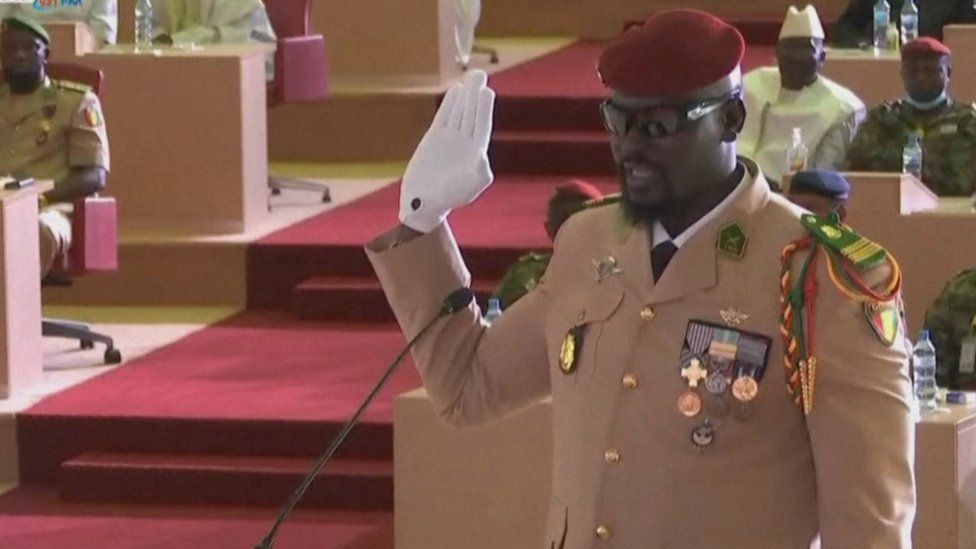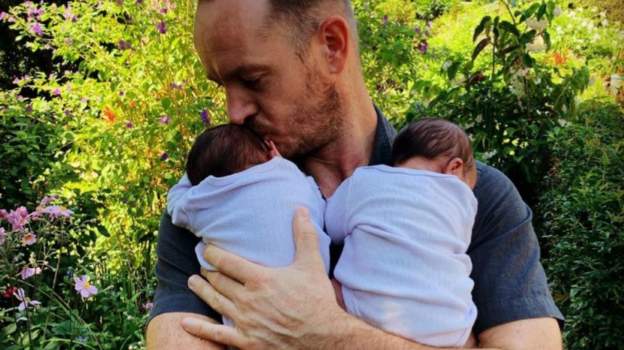Col Mamady Doumbouya has been sworn is as Guinea’s interim president after leading a coup which saw the overthrow of Alpha Condé.
The former French legionnaire, 41, becomes Africa’s second youngest leader, after Mali’s Assimi Goïta, 38, who also staged a military takeover.
Col Doumbouya is barred from contesting future elections, under a transitional charter published this week.
The 5 September coup has been widely condemned,
Both West Africa body Ecowas and the African Union have suspended Guinea.
Ecowas also imposed sanctions against the coup leaders and demanded a return to constitutional order within six months.
Guinea’s military junta has announced plans to move the country towards civilian rule but did not specify how long the transition would be.
The document was drawn up after days of consultation between the military and political, religious and business leaders.
Anyone taking part in the interim government led by a civilian prime minister will be barred from standing in the following elections.
Col Doumbouya said the army had seized power because of rampant corruption, disregard for human rights and economic mismanagement under 83-year-old former President Condé.
The military coup leaders detained Mr Condé after their takeover, with Col Doumbouya assuring French media he was with them in a “safe place.”
Before his rise to power the colonel maintained a low profile, but what makes him stand out is his international military experience, according to West Africa Political Analyst Paul Melly.
The colonel trained in France and served in the French military.
During his 15-year military career, Col Doumbouya served in missions in Afghanistan, Ivory Coast, Djibouti, Central African Republic and close protection in Israel, Cyprus, the UK and Guinea.
Guinea’s new leader is friends with his fellow coup mastermind in Mali – President Goïta, according to news website Africa Guinea.
The same site reports that in 2018, the two military men crossed paths in Burkina Faso during a training session organised by the US army, which was reserved for the region’s special forces commanders.




